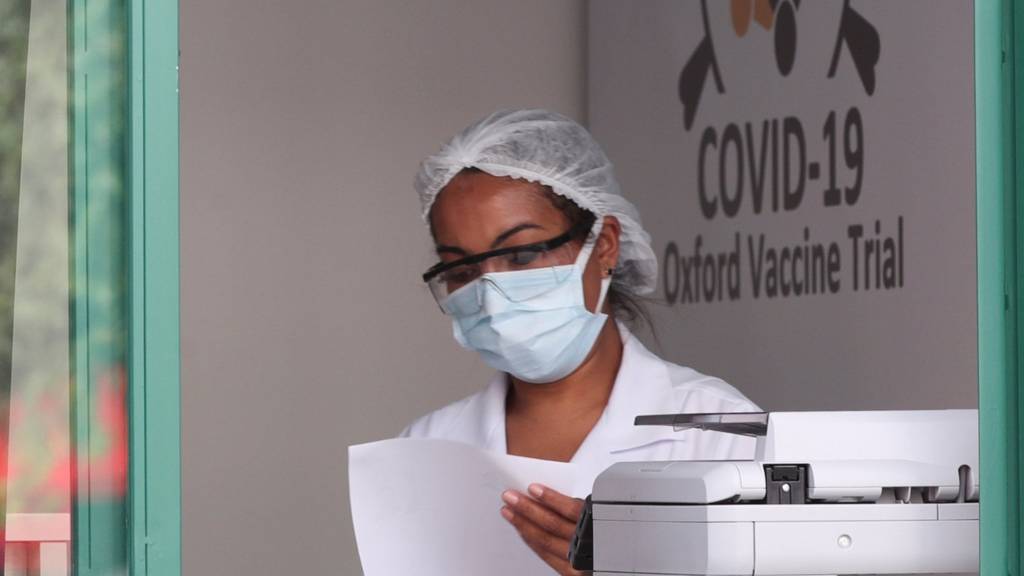RIO DE JANEIRO, BRAZIL – In its most recent report on Friday, the World Health Organization (W.H.O.) announced that 165 vaccines are being developed. Of these, 26 are under clinical evaluation, that is, they have started human trials.
There are approximately 90,000 volunteers, for the time being, who will be administered the doses. Six of the vaccines are in their third and final phase. The remaining 139 are at an early stage of identifying the triggering agent and testing animals, such as mice.
Two of the vaccines at a more advanced stage have the participation of Brazilian institutions. The Butantan Institute is working on development with the Chinese pharmaceutical company Sinovac for production and testing. The Emílio Ribas Infectology Institute began testing this vaccine on Thursday.

The Bio-Manguinhos production plant at the Oswaldo Cruz Foundation (Fiocruz) is preparing to produce the vaccine against Covid-19 developed by Oxford University in the United Kingdom. The agreement between Fiocruz and AstraZeneca, the pharmaceutical company that acquired the British vaccine, was announced in late June.
The platforms being used for vaccine development are basically divided into four categories. The search from the inactive virus is the most traditional. The virus undergoes mutation processes until it becomes unable to cause the disease. There is also a way to achieve a cure by an attenuated virus, the difference being that it still contains live but weakened infectious agents that are incapable of contaminating a human being.
The second form is vector-viral (replicant and non-replicant). Part of the virus is collected and genetically modified to produce coronavirus proteins. The difference between them is that one can replicate within cells and the other can not.
Another way to achieve a vaccine is by using nucleic acid (DNA or RNA). It consists only of the genetic material and not the virus. It does not yet have proven efficacy in the market. The nucleic acid encodes the protein of the virus to inactivate it.
There is also an attempt by protein subunit. This is the one with the most studies. It focuses on the entry process of the virus into the cell, acting like a membrane that will prevent the novel coronavirus from binding to the cell.
Options being tested:
- Developer: Oxford University / AstraZeneca
Stage: Stage 3
Platform: Non-Replicating Vector-Viral
Testing: 2,000 volunteers
Administration: Single dose
Start of study: May 2020
Deadline for completion: July 2021
Latest news: It proved safe and produced an immune response in early clinical trials on healthy volunteers. - Developer: Moderna / NIAID
Stage: Stage 3
Platform: RNA
Testing: 30,000 volunteers
Administration: Two doses in a 28-day interval
Start of study: July 2020
Deadline for completion: October 2022
Latest news: It was considered safe and triggered an immune response in all 45 volunteers at an early stage. - Developer: CanSino Biologics Inc.
Stage: Stage 2
Platform: Non-Replicating Vector-Viral
Testing: 500 volunteers
Administration: Single dose
Start of study: April 2020
Deadline for completion: January 2021
Latest news: It proved safe for patients and triggered a significant immune response, according to results published by The Lancet medical journal. - Developer: Sinovac
Stage: Stage 3
Platform: Inactivated virus
Testing: 8,870 volunteers
Administration: Two doses in a 14-day interval
Start of study: July 2020
Deadline for completion: October 2021
Latest news: The first human trials were conducted in July in professionals at the São Paulo Clínicas Hospital. - Developer: BioNTech / Pfizer
Stage: Stage 3
Platform: RNA
Testing: 32,000 volunteers
Administration: Two doses in a 28-day interval
Start of study: April 2020
Deadline for completion: January 2022
Latest news: According to pharmaceutical companies, strong immune responses were found before the estimated deadline. - Developer: Beijing Biological Institute / Sinopharm
Stage: Stage 3
Platform: Inactivated virus
Testing: 5,000 volunteers
Administration: Two doses / 14 or 28 days
Start of study: July 2020
Deadline for completion: July 2021
Latest news: Trials have shown the safety and ability of two doses to trigger immune responses.
Source: O Estado de S. Paulo

